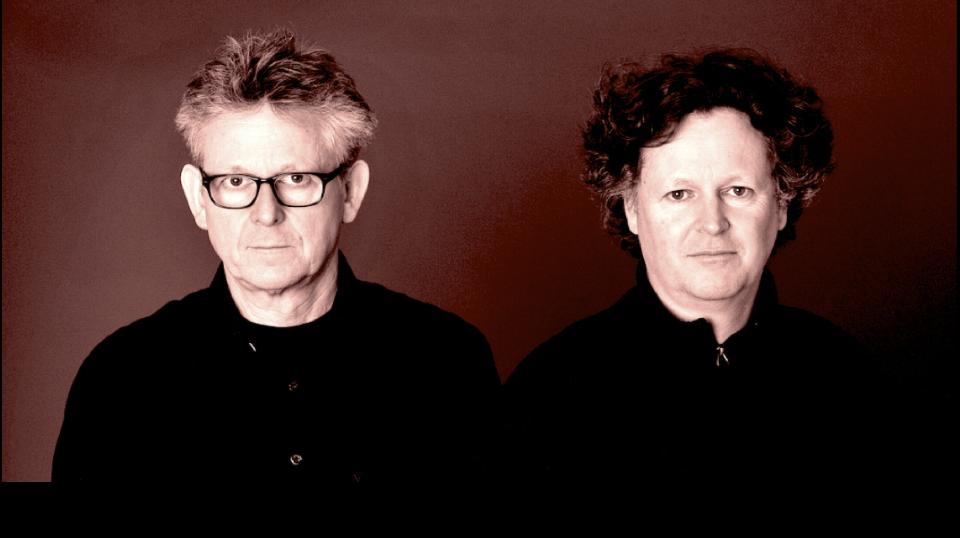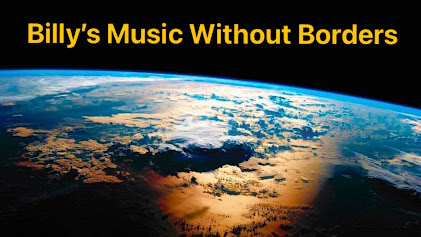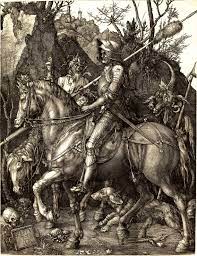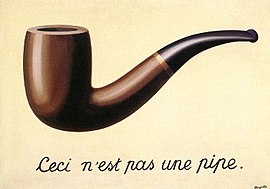"In the middle of the journey of our life I came to myself within a dark wood where the straight way was lost. Ah, how hard a thing it is to tell what a wild, and rough, and stubborn wood this was, which in my thought renews the fear!"—Dante Alighieri, The Divine Comedy
"Oh great, you put in the Prize of German Music Critics. Yeah, we are quite proud of this one! We were dancing on the table. Being acknowledged together with those giants, our heroes."
—Ernst Ströer
What God says is best, is best, though all the men in the world are against it."—from Pilgrim's Progress by John Bunyan
THE RED KNIGHT
"The red knight is symbolic of all the feelings of a typical teenage boy – uninhibited passion, rebellion, self-gratification, aggression, lust, desire for power. The red knight is out of control and dangerous, yet he is a source of great vitality and power that only needs a channel of greater maturity to hone himself."—from “David Deida and the three knights of Iron John” by Eivind Figenschau Skjellum
THE WHITE KNIGHT
"The red knight gives way to the white knight, who desires to save the world from all its ills. He longs for truth and justice. He wishes to be good and do good. He is an idealist. Yet, for all his good qualities, he is also naive and deluded. The white knight doesn't have the awareness to notice that many of the ills he wants to save the world from are projections of his own undealt-with traumas and desires, and so he goes on a crusade to save the world from that which he doesn't like in himself. He points his fingers at all the dragons of the kingdom, so that songs in his praise can be sung when he conquers them (something he spends significant mental energy fantasizing about). He is on the hunt for the virgin of light, so that he can save her and feel manly. The white knight prefers to see women as damsels in distress, knowing deep down that a mature woman is too much for him. Still, in real life, he often ends up with a woman that resembles his mother."—from “David Deida and the three knights of Iron John” by Eivind Figenschau Skjellum
[DESCRIPTION IN REVIEW OF HOMEWARD]
THE SOUND
The Post-Punk Ströer Bros. has given way to an orchestrated percussion symphony throughout the album, and actually symphonic treatment on the achingly beautiful "Wordless Love." The confrontational music with its aggressive vocal stance from Nomaden has matured, and the hubris of youth has transformed thoughtfully into introspection and a collective call for reform. "I" has become "we" and the accusations are few and far between. The tempos are slower, but the groove is deeper.
There is also a different sort of humor in the music and words of this album, and it is closer to the self-deprocating humor of a good late-night talk show host. There is, as well, an unexpected but delightful sense of silly playful and some cracked philosophy. There are Easter Egg references to oodles of pop and jazz ear-candy Classics from the two thousandsies. Make no mistake, all three of these albums are orchestration genius. Setting existing verse to music is no mean feat. To be clear:
no mean feat (plural no mean feats) (litotes) A laudable triumph of great difficulty; no small feat.
THE SONGS
1. Day By Day, We Drift Away 4:18
There is a sound like a child's music box with an electronic drumkit beating bassy in a march time hesitation step. "Day by day, we drift away / We stay, we play / We try to be the ones we are: / Ain't we all, ain't we all?" Gone is the cock sure hubris of Nomaden. We are on a kind of Merry Prankster's Further journey on a bus market Even Further Floating on a Blue Ball. Pizzicato strings replace the power pop speed trap from 15 years ago, and middle age has taken the Middle Path with slow percussion and a sweet chorus of soprano voices. Howard intones: "How can man ever recover from this endless fall from grace?" Questions now, not declamatory rants. Feminine voices take the final verse all on their own: "What's mis-sewn we two unravel / Joyful moan of Voodoo Travel / In bus we trust, ain't that enough? / Don't need no bus / 'Cause the bus - is us!"
2. Inbreath Outbreath 3:03
"The collective suicide has been averted." That is a pretty scary thing to say to start the second song on the album. "Breathless, deathless, on the threshold / Specious epos Adam's flesh told / Homo sapiens' flash in the pan / Amphigory story of man." When one wants to indicate "word play," there is not better way than to employ the word "amphigory." The weight of this song is the transitory nation of man. E.g., our bodies are all dying vessels. Good luck, Pilgrim!
amphigory - Wiktionaryhttps://en.wiktionary.org › wiki › amphigory
NounEdit. amphigory (plural amphigories). A nonsense verse; a rigmarole, with apparent meaning, which on further attention proves to be meaningless.
3. The Oracle Has Answered 4:28
"The oracle has answered / In words no tongue can speak." Now when that happens, you can ask for your money back, but The Fates are more powerful than the Gods, so most just chalk it up to experience. Experience is what we are exploring here these first three songs. Now the muted trumpet solo over synth figure here is dreamy and inspiring. Damn! Once again, we may have a refugee from the Kenton orchestra blowing that thing! Unison Sprechstimme rears its many heads. "Are you on the phone more than on your own? / To which virtual vices are you habitually prone?" Howard's distaste for this has lead him in later years to have no website, and when one tries to find him on FaceBook, no doubt one will spend many hours wondering if he is a celebrated acting teacher in the U.S.A., but he is not. He isn't there! No FB! No Messenger. Email, yes. And I must say I envy him his place in a small town in France. They live there, not virtually, but the other way. You know. 3D.
4. Stay On Course Toward The Source 5:42
Now I tell the woman I love that text to her don't count when I put them in parenthesis. She doesn't buy that. The "Intro" to this song is written in parenthesis, and sung by the chorus of doubled voices named Veronika Zunhammer. Just one woman with many voices. I guess the Bros. don't know many women. Ah well. The feminine chorus carries the wisdom in this song, and generally throughout the album. Thanks Veronika! Howard gives the advice to stay on course toward the source. A little vague, but good advice just the same. Note the level of introspection here is monumental. The accusations of Nomaden have given way to a "We" as the subject of the song. Good man! We have begun the long road to Enlightenment, I suppose.
"There are only two mistakes one can make along the road to truth; not going all the way, and not starting."—Siddhartha Gautama, often called "Buddha"
Oh yes. Time seems to stop now. Slowly start now. There is a single-note Fender Rhodes figure sounding like a John Klemmer "Touch" minimal keyboard thing. The accented time is delicious and slow. "If you can't swing slow, you can't swing." said Count Basie.
6. News From Nowhere 5:31
The music here is a bass heavy percussive dancescape, to coin a phrase. This works particularly well over Howard's increasingly fantasy-driven lyrics. The images are somewhere between Paul Gauguin and Pieter Bruegel and it sits right nice on a bed of wide-spectrum percussion and danceable bass. The Bros. do know how to find a groove! Note I was onto something here. Fine states what I felt a couple of songs back about the "I" becoming "we" for this outing.
7. Wordless Love 2:42
“Wordless Love” inspired by Clemens Brentano’s poem “Geheime Liebe”
This setting and Anders Holts' voice reminds me of a song by WasNotWas sung by Frank Sinatra Jr. or even the later song by WNW sung by Mel Tormé "Zas Turned Blue." What works so very well here is the astonishment I feel at hearing an orchestral setting of a crooner's craft to sing straight and clear a lovely ballad. I really didn't see that coming. Anders Hold knows how to sing a song! Oh my! This song is beautifully set on a luscious art song orchestral bed of lettuce. Stunning! Yummy! This setting for strings could have been written by Ennio Morricone for a movie set perhaps in Japan owing to the way the strings double the vocal melodic line.
A theme of heartbreak was salted through the lyrics above. I have to wonder if The White Knight is fullfilling the prophecy of Robert Bly. I'll repeat it here.
"He is on the hunt for the virgin of light, so that he can save her and feel manly. The white knight prefers to see women as damsels in distress, knowing deep down that a mature woman is too much for him. Still, in real life, he often ends up with a woman that resembles his mother."—from “David Deida and the three knights of Iron John” by Eivind Figenschau Skjellum
8. Ghost Town Square Dance 5:17
A high chord of strings haunts the outset with that swimmy "Bill Frisell" singing guitar. Love that guitar! This really is a square dance complete with a "Devil Came Down To Georgia"-style fiddle feature. My subwoofer loves this song! Oh my! The choral break sounds like Roger Waters at his optimistic "The Tide Is Turning" best. This song is a standout in my opinion.
That bleak lyric sets the tone, but the all-girl choral work (from Veronika) makes that medicine go down sweet like a honey-tongued Devil sweet talking about eternity. There is beaucoup wisdom in this song, and a story-message about the gold rush and diminishing returns and live and death, death, deathy death. We have gone deep into the realization of The White Knight that no one gets out of here alive. I just repeated that line, but it is the best lyric Jim Morrison never sang.
9. The Goal Of Soul 4:47
There is a Argentine bandoneon played by Hans Ströer at the start of this song that sounds like coming home, like the smile from a friend, or a harmonica played by Toots Thielemans. I take it this song is a prayer — and a good one. The songs on this album take strange turns and prove the incredible power of those two goof balls pictured below: Hans & Ernst. The level of sophistication in the orchestration and the detail in the percussion throughout this album are stellar, but this song is one of the best.
10. Speech Surrenders 5:34
There is enough nonsense and Jabberwacky speech to make me wonder if Howard is taking on Brother Wittgenstein and his death of philosophy rhetoric. The combination of Through the Looking Glass and words as sonic assault against meaning with stuff like:
11. Merger With The Void 5:35
Pun alert! A "merger" is a business term for two businesses become one business. I don't know what a "merger" with the void might be. What is the "Void" anyway? That is not a term in physics but a metaphysical entity that Nietszche might stare into until it stared right back at him.
The human body is inhabited by millions of tiny living organisms, which, all together, are called the human microbiota.
12. Darwin's Masterful Stunt 3:31
Hi, we're zombies!
13. Pipedream's Puff 4:09
What is the "Pilgrim's Trade?" I believe we have tipped our hand here. Pilgrim's Progress employes an extended metaphor which can be called a "conceit." The word game here is cognitive dissonance. There is wisdom in mismatched analogies to free the mind of pesky sense. A sensual freedom can result. 'Nuff said.
CONCEIT, figure of speech, usually a simile or metaphor, that forms an extremely ingenious or fanciful parallel between apparently dissimilar or incongruous objects or situations.
14. Fruitfly, Multiply 4:52
There is an after-hours piano trill, then a gong, and after that a "time has stopped" ominous synth figure with ticky talk including the Child's Bedtime Prayer though altered in a sinister (left handed) manner. But this song sounds like genuine heartbreak with no disguise. I respect that. I am in love right now, and happy about that no end. Charles Aznavour once said that he wrote songs of love when he was alone after the end of a relationship, and he wrote songs about a breakup when he was in love, because that was what he feared the most. This one sounds like maybe it is so raw that it was written about a breakup and it was written DURING that breakup. It feels raw.
15. I Was Down On The Earth 6:40
Guitar at the beginning here sounds a touch like Radiohead's favorite intervals played swimmy. This song has lots of arranging, like various unrelated rooms in a mansion with all sorts of different styles, and a general unpredictable amble and Howard's alien or prehistoric ramble. The following passage seems a benediction to this album. Howard Fine has morphed into a figure like Shakespeare's Puck to break the "third wall" and talk an aside to the listeners:
| Label: | Ilusion Records – ILU 500.201 |
|---|---|
| Format: | CD, Stereo, Special Edition with 64 Page 4 Colour Textbook |
| Country: | Germany |
| Released: | 2010 |
| Genre: | Electronic, Hip Hop, Jazz, Funk / Soul, Pop, Folk, World, & Country |
| Style: | Downtempo |
Tracklist
| 1 | Day By Day, We Drift Away | 4:18 | |
| 2 | Inbreath Outbreath | 3:03 | |
| 3 | The Oracle Has Answered | 4:28 | |
| 4 | Stay On Course Toward The Source | 5:42 | |
| 5 | On The Shores | 6:07 | |
| 6 | News From Nowhere | 5:31 | |
| 7 | Wordless Love | 2:42 | |
| 8 | Ghost Town Square Dance | 5:17 | |
| 9 | The Goal Of Soul | 4:47 | |
| 10 | Speech Surrenders | 5:34 | |
| 11 | Merger With The Void | 5:35 | |
| 12 | Darwin's Masterful Stunt | 3:31 | |
| 13 | Pipedream's Puff | 4:09 | |
| 14 | Fruitfly, Multiply | 4:52 | |
| 15 | I Was Down On The Earth | 6:40 |
Credits
- Artwork – Ernst Ströer
- Flute – Walter Weh (tracks: 4, 5)
- Instruments – Ernst Ströer, Hans P. Ströer*
- Lyrics By – Howard Fine
- Mastered By – Guido Hieronymus
- Mixed By – Ströer Bros.
- Piano – Roberto Di Gioia (tracks: 2, 5, 11)
- Producer – Ströer Bros.
- Recorded By – Ströer Bros.
- Saxophone – Walter Weh (tracks: 2, 7, 13)
- Synthesizer – Roberto Di Gioia (tracks: 2)
- Trumpet – Claus Reichstaller (tracks: 3, 10)
- Violin – Almuth Siegel (tracks: 7), Jan Baruschke (tracks: 8)
- Vocals – Anders Holte (tracks: 7), Ernst Ströer (tracks: 1, 2, 4, 5, 8, 10, 11, 12, 13, 14), Hans P. Ströer* (tracks: 3, 5, 6, 8, 9, 10), Stefan Schwerdtfeger (tracks: 4, 6, 9, 11, 13, 15), Veronika Zunhammer (tracks: 1, 2, 4, 5, 6, 11, 12, 13)
- Voice Actor – Barbara Weber (tracks: 14), Howard Fine
- Written-By – Ernst Ströer (tracks: 2, 4, 7, 11, 13), Hans P. Ströer* (tracks: 1, 5, 6, 8, 12)
Notes
Produced By Ströer Bros. 2001-2009
Copyright 2010 By Hans P. Ströer And Ernst Ströer Musikverlag
Recorded At Ströer Studios 2001 - 2009
Mixed At Ströer Studios 2009
Picture Of NGC 7674: NASA, Public Domain.
Photos Of Ströer Bros. And Howard Fine By Annette Hempfling, Munich
Thank You: Troyan Drums, Munich


Email: billymwb@gmail.com
Submissions accepted. Send a link, not a CD. Lyrics and artwork plus any information is appreciated. Access to artists for interviews encouraged.


















